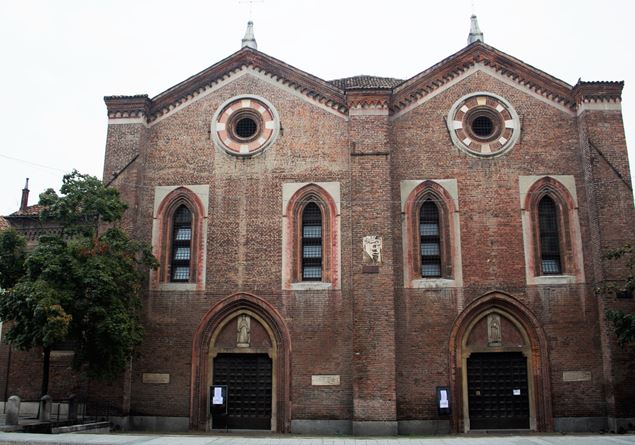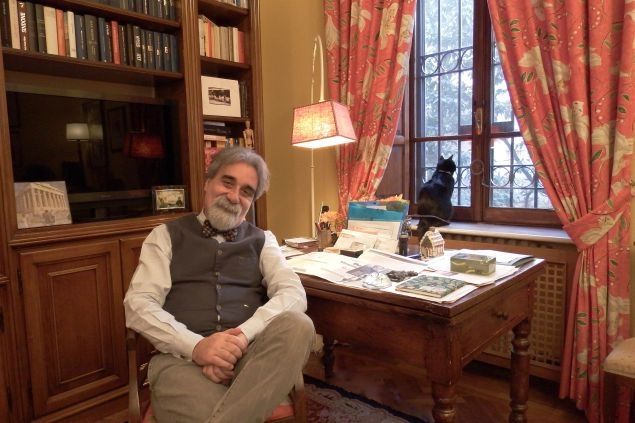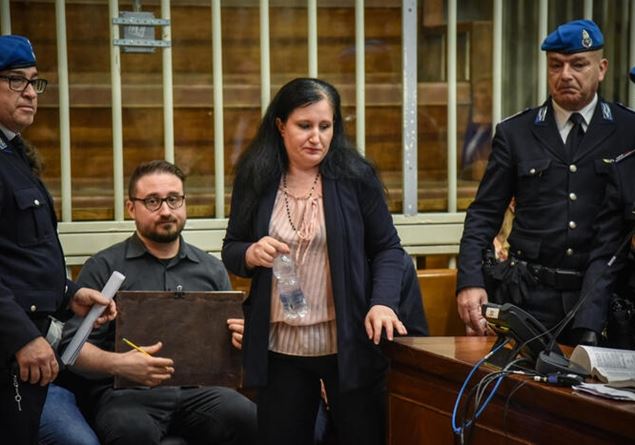The cover of the book published San Paolo, 2025
A few more days of waiting and the bells of the schools throughout Italy will resume playing. The return or the first time in the classroom will represent for millions of students the beginning of an adventure of life, between education, knowledge and moments both beautiful and difficult but always of enormous personal growth. In parallel, however, the start of the new school year brings with it some heavy doubts, linked to the increasingly complex and conflicting relationship that many young people, especially teenagers, have with the school. A place where dialogue in many cases cannot be more central and teaching becomes too technical and not very human. Giuseppe Nibaliprofessor and writer born in 1991, recently published the work (published by San Paolo Editori) One thing that does not speak. Intellectuals and students against school. And now he analyzes the various elements of contrast, also underlined by the guys protagonists of the book themselves.
Professor Nibali, from what its need is the idea of this work born?
«The thing that was interested in most was to talk about school, because it is one of those sectors that I have lived and visited for a long time. A place in my opinion private, which concerns me and the boys. A particular place, which for me was a source of fun and distraction, now seen by many students and teachers as a place of pain and depression ».
Why, for you, is pain is an element now rampant in schools?
«The boys don’t feel understood, they seek a relationship and knowledge that they often do not find. Then the speech is always subjective, there are those who set out very well at school. But in general this pain is an existential and structural question. The Italian school forces its young people, in the midst of their physical and intellectual power, to sit in a chair for 6/8 hours a day. There is a mortification of the body and a fury on the concept of mental discipline. The teachers, on the other hand, should focus more on stimulating passion and curiosity. Of course, many teachers also have problems that derive from the school system. It becomes all a vicious circle that often shows school as a jail ».
In the book the boys dialogue with some academics. How do you mean the concept of dialogue, an increasingly central element and required by students?
«There are two types of dialogue for me. The symmetrical one, where the teacher gets on a par with the student. Interesting mode, but which involves risks. I am more for asymmetrical dialogue, where children and teachers must be considered absolutely equal from a human point of view but not on that of knowledge. Be careful, it does not mean that students cannot teach anything to the professors. I learn a lot from them. But at the level of intellectual knowledge we can give more to the boys. The dialogue must start from here, the teachers must be estimated for their intellectual knowledge and how they transmit them. In my book, the dialogue between students and academics is based on mutual respect, but above all on the experience that these teachers have and make available. The boys need to find clear reference points ».
The young people of today are often accused of not being interested in anything, while they respond to having many ideals but of not being able to express themselves at best. Where is the truth?
«This is a generational reasoning. That is, that each generation thinks he is better than the next one. The past is then considered always better. Even Cicero and Leopardi thought that their era was less interesting than the past. Today’s guys are seen as disrespectful, but I assure you that it is not so. Instead, I know great potential in them and the school must help them develop them. Of course then there are the genes and the less good ones, but they are all smart ».
What do you think of the new and most stringent more stringent ministerial rules, linked to the ban on the use of cell phones in schools?
«This is a pension operation so wanted by Minister Valditara, which I do not share. First of all, the teachings should also be removed. I often see in some classes that the teacher assigns group works and then puts himself with his head down watching the phone. For me cell phones are also useful for some aspects of the lessons. With this prohibition we want to bring the boys even more to a “80’s” school. A school remained anchored in the past, full of bureaucracy and prohibitions. With intervals and bells that recall prisons and factories. The boys will continue to use phones, because they will often find less zealous teachers in control. Otherwise they will devise other methods to distract themselves ».
In conclusion with another theme of his book: the boys claim to be considered only a number or a vote. What idea did you make those students who refused to do the oral exam for maturity for protest?
«I think first of all that it will be little fun to see what will happen next year. Those who support oral even if it will make a change of change because it has not studied maybe it will be promoted if it reaches the minimum score. Those who do not do it by conscious choice will be rejected regardless of the vote. And this is a punitive system for me. We must form the boys as future citizens and make their thoughts critical, totally autonomous. Without baseing everything on one vote. The number now creates anxiety in boys. An anxiety magnified by family expectations, by the judgments of social media and the dynamics of a too competitive company. Then of course, even if I understand the choice of these students, sorry to me that you give up doing oral, it is the most beautiful thing about maturity because you can express yourself in the best way “.








